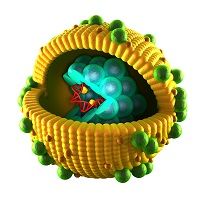Article
Unfollowed Containment Protocol Culpable for Outbreaks of Deadly Respiratory Virus
Author(s):
Inadequate infection control is to blame for the widespread transmission of the Middle East respiratory syndrome coronavirus (MERS-CoV), an article published in the American Journal of Infection Control (AJIC) claimed.

Inadequate infection control is to blame for the widespread transmission of the Middle East respiratory syndrome coronavirus (MERS-CoV), an article published in the American Journal of Infection Control (AJIC) claimed.
Highly fatal and causing severe respiratory disease, MERS-CoV infections had spiked heavily since May 2014, with 536 reported cases and 145 deaths globally. Healthcare workers (HCW) are disproportionately affected since the MERS-CoV can survive on surfaces for up to 48 hours and can be spread via vomit and diarrhea, an Elsevier statement mentioned.
For their study, Greek researchers ultimately looked at 10 studies which focused on the possible spread of MERS-CoV in healthcare settings.
Identifying 11 cases resulting in high rates of morbidity and mortalities among comorbid patients, the investigators found all cases consisted of a lapse in infection control. Through infected HCW had less severe symptoms and were more likely to survive from their ailment, their infections were highly responsible for MERS-CoV’s epidemic status in the Arabian Peninsula.
“Patients with confirmed or suspected MERS-CoV infection should be cared for under contact and droplet precautions until testing results,” the researchers recommended.
While the World Health Organization (WHO) dictated wearing high protection masks, eye goggles, gowns, and gloves while deploying aerosol-generating procedures, and the US Centers for Disease Control (CDC) urged using respirators when in contact with a confirmed patient, more research is required to determine what lacking procedures caused these outbreaks. Nevertheless, the authors pressed for the creation of vaccines and antiviral agents to combat the virus.
“Overall, our knowledge about the epidemiologic characteristics of MERS-CoV that impact health care transmission is very limited,” they noted. “As the MERS-CoV epidemic continues to evolve, issues concerning best infection control measures will arise, and studies to better define their effectiveness in real life are needed.”


